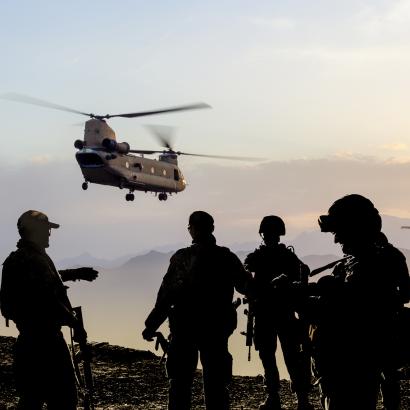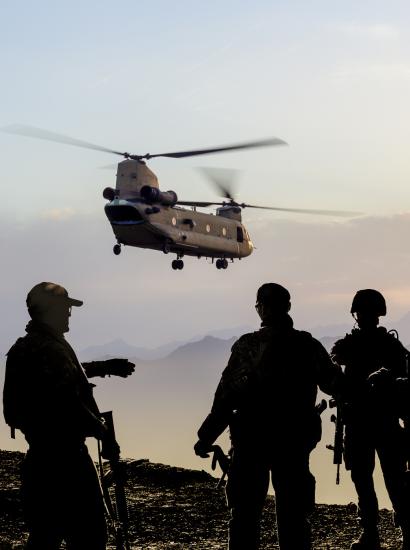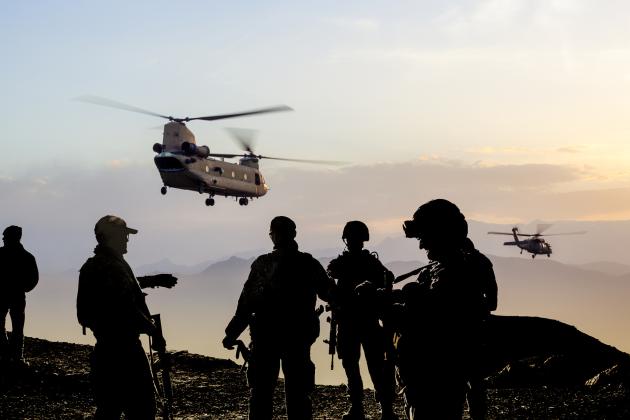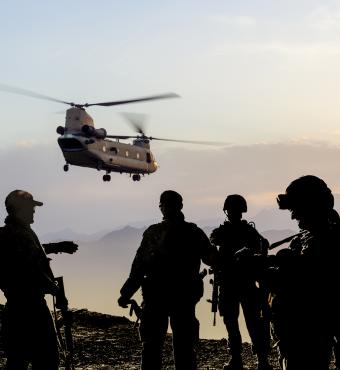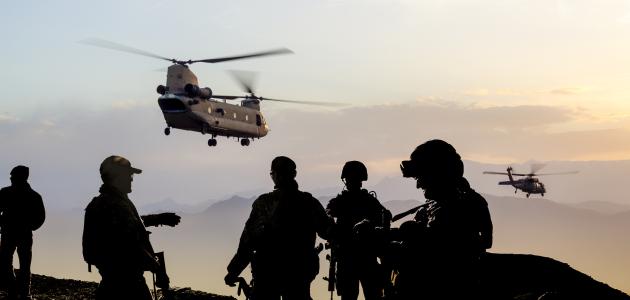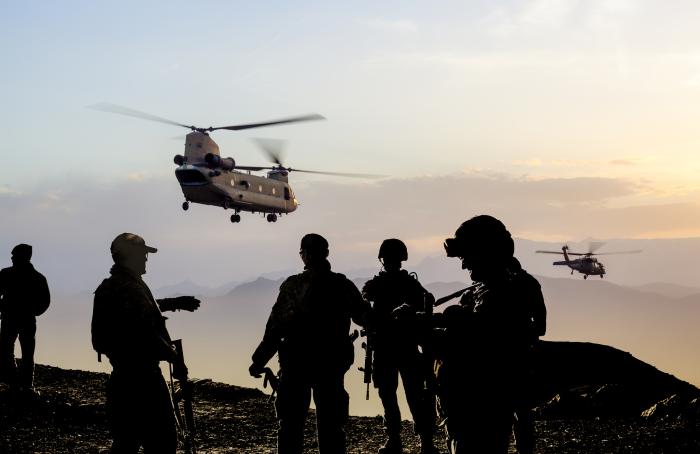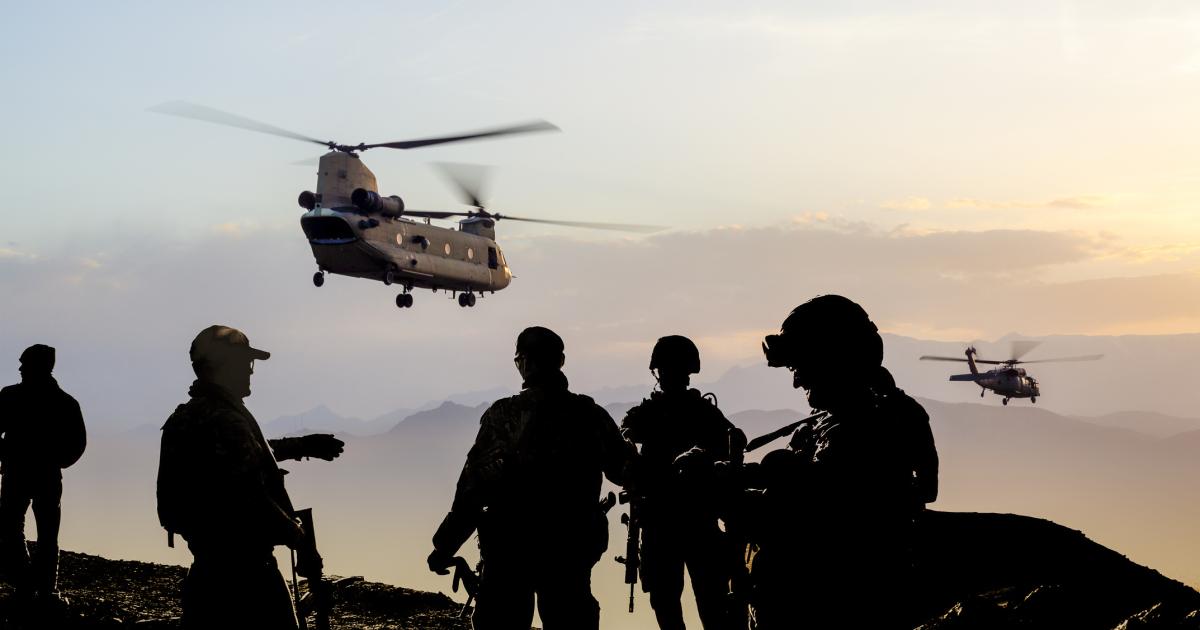After seven decades of selling weapons to our allies in the Gulf reassured by the fact that we sold more planes than there were trained pilots, we are finally confronted with a foreseeable, yet jarring dilemma: what happens when the Gulf states finally decide to use the weapons in pursuit of their own interests?
In Yemen, the United States’ Gulf allies have for the first time led a mass war campaign using U.S.-made weapons and equipment - but without the experience that our NATO allies have. Those same Gulf states have benefited from a live training ground that has allowed them to hone their military capabilities - but also to make significant mistakes. Meanwhile, the United States has merely played a support role, thus protecting itself from committing ground troops - but also limiting its control over decision-making and making it subject to guilt-by-association criticism. This new situation - wherein imperfect allies take the lead in waging war - has created a series of new policy dilemmas.
The perceived U.S. withdrawal from the region coupled with a Saudi leader willing to take aggressive action and an Emirati leader ready to hone his country’s military prowess has led the United States into a set of policy dilemmas it did not face when it took the lead waging wars in the Middle East in Kuwait (1991), Afghanistan (2001), and Iraq (2003). In short, the way the Yemen war has played out should spur policymakers to put agreements in place to ensure the United States does not face the same dilemmas again.
Perceived U.S. Withdrawal from the Region
On the back of long, bloody, and costly wars in Iraq and Afghanistan, the American people and their presidential administrations across both parties began to disengage from the Middle East – at first with so-called pivots to Asia and then a refusal to get drawn significantly into post-Arab Spring conflicts, which its regional allies wanted to fight. The Gulf states worry that this new American mindset puts them at risk, especially since they cannot gauge the extent of the desire to disengage. These doubts about the American commitment to Gulf state security (or, in their view, regime survival) deepened after the Arab Spring. They wondered: would the United States come to our defense like it did for Kuwait in 1991 or leave us to wither on the vine like it did with Egyptian President Hosni Mubarak in 2011? The Gulf states have responded differently to the perceived decline in a U.S. commitment to the region: Oman and Qatar have tried to entice America to keep its footprint in the region by offering military access to a new port or by offering free upgrades for an existing military base, respectively. The Saudis and Emiratis, in contrast, have decided that they need to protect their own neighborhood and thus ramped up their own engagement. This latter reaction laid the foundation for an extended intervention in Yemen.
Saudi Willingness to Engage Militarily
The Saudi willingness to engage militarily in Yemen arose with a change in leadership. Crown Prince Mohammad bin Salman (MbS), a young prince who rose to power quickly with a massive agenda for change, perceives aggressiveness and speed as necessary ingredients for his overhaul of Saudi policy. Not one for patient diplomacy, his foreign policy is most often described by anecdotes of the teller’s choosing: there is the time he coerced a standing prime minister in Lebanon to resign on television or the time he blackmailed the UN Secretary-General into banning the release of an unfavorable report about Saudi Arabia or the time he severed the Canadian bilateral relationship over a tweet. Such actions seem to suit MbS’ style: assertive, abrupt, and risky decisions with the hope of big results. In 2015, the war in Yemen was a similar gamble. Indeed, Gulf officials privately admit the Saudi leadership believed the war in Yemen would only take three weeks – instead, the prince in a hurry finds himself mired in Yemen four years later.
Saudi Arabia under MBS’ leadership presents a new dilemma for the United States: a major Gulf ally willing to launch a war with U.S.-made weapons, but lacking the capability to win it. Saudi Arabia may be as well-equipped as a NATO ally, but it is not as well-trained. Moreover, it has not had the stomach for sacrifice that its enemy has; instead, with some exceptions, it has preferred mercenaries to Saudi soldiers and air campaigns to ground fighting. Lastly, its inexperience has risked American guilt-by-association for events the United States would have tried to avoid if it were leading the war.
UAE Seeks Real Military Capability
Just as Saudi Arabia was willing to launch a war, the UAE was willing and able to fight it - but largely on its own terms. Mohammed bin Zayed (MbZ), the de facto leader of the UAE, has long sought to build a world-class military. In 2002, the war in Afghanistan provided an opportunity for UAE Special Forces to embed with the Americans, thus allowing the UAE to develop capabilities unparalleled in the Gulf. If the UAE “cut their teeth in Afghanistan,” as one American military officer described it, it honed its skills in Yemen. Independent of the United States and often without its support, the UAE has developed its own partners in Yemen and conducted impressive ground, air, amphibious assault, and counterterrorism operations.
Having a skilled ally like the UAE can abate U.S. concerns about inexperience, but such military prowess and independence presents a different dilemma: such allies can provide, wittingly or unwittingly, their U.S.-sourced training, capacities, and provisions to third party actors without U.S. knowledge or consent. Reports surfaced in early 2019 of a U.S. Defense Department investigation into UAE transfers of U.S.-sourced military wares to local actors in Yemen. Certain diversions may be in violation of the terms of sale, giving the United States some leverage going forward but little in the immediate term. Moreover, transfers of knowledge and other qualitative capacities to unsavory actors may be entirely out of U.S. control.
The Dilemma of the Imperfect Ally
The waging of war by Gulf allies, their use of U.S.-made weapons, their developing military prowess, and their capacity to make serious mistakes all contribute to the dilemma of an imperfect ally. Indeed, the war in Yemen is a grim example of what taking a backseat to a non-NATO ally can look like.
Of course, all military powers, including NATO powers, are imperfect. But the United States and NATO allies have learned costly lessons through experience and, on that basis, developed norms for engagement. They continue to, in effect, “perfect” their rules of engagement. As a result, the United States can trust NATO allies to broadly respect certain acceptable rules of engagement and ensure the requisite levels of training for a task, which limits mistakes. Moreover, consensus-based decision-making ensures the United States has a say in whether to engage in war and to what end.
Not so in Yemen. The Saudi-led coalition has made significant mistakes - measured in lives lost - as a result of inexperience, inconsistent thresholds for engagement, insufficient targeting intelligence, and improper munitions selection, among other reasons. Their imperfections threaten to mar the American reputation, even as we try to limit them.
Moreover, U.S. military officers in the Gulf were not given forewarning of the Yemen war. Fearful that its allies may be unprepared, the United States rushed to deploy logistical assistance and intelligence support. Since then, the United States has remained uncertain about the war’s objectives and reluctant to get involved, yet also loathe to spurn an ally. The result: America is half-helping. As one senior American military official put it, “We helped enough to be responsible, but not enough to succeed.”
Alliances like NATO provide the United States leverage over decision-making about strategy, campaign design, rules of engagement, and war. This type of system supports and protects all parties by aligning their relative capabilities and by right-sizing to threats. Such an alliance, agreement, or framework does not exist in the Gulf despite repeated efforts to build one. As a result, the United States should consider alternatives.
First, the United States should reconsider its disengagement from the Middle East. Significant American interests in the region remain, particularly related to the free flow of trade. U.S. leadership and security frameworks remain essential, even if we take more of a backseat role on occasion. After all, a passenger is just as interested in the destination as the driver.
Second, U.S. weapons sales processes and terms should take into account this new context wherein our Gulf allies may use the weapons to wage a war with or without U.S. support. Once purchased, weapons are owned by the buyer, yet victims of a bombing campaign often assume U.S. complicity by pointing to U.S. markings on bomb fragmentation after an attack. Due diligence is thus essential.
Third, in lieu of a broader alliance, bilateral agreements on these issues between the United States and its Gulf allies would be a start. Such agreements would need to cover the decision-making process for engaging in a war, the conduct of the war, investigative practices when mistakes are made, and engagement with local third parties, particularly with regard to knowledge and weapons transfer.
Given this new context, the United States must create a “new norm” with its Gulf allies, starting with ensuring every party’s leverage over decision-making is commensurate with its perceived culpability for such a decision. Moreover, the United States must clarify that it is in its national interest to support allies, but not necessarily to support their wars. In return, the United States needs to provide its Gulf allies with the faith that it is committed to their security concerns and engaged in the region.
Policymakers in Washington are now arguing over solutions to the dilemmas in Yemen. Some Congress members argue that the United States may be implicated in violations committed by the Saudi-led coalition in Yemen, so it must withdraw its support. The White House argues that U.S. support helps minimize the coalition’s mistakes, thus saving lives. By definition, a “dilemma” means there is no ideal solution; as such, the U.S. policy community will continue to lack optimal options in Yemen, but that same community must seize the opportunity to put policies and agreements in place to avoid these dilemmas in another future context.
Elana DeLozier is a Research Fellow in the Bernstein Program on Gulf and Energy Policy at the Washington Institute for Near East Policy, where she specializes in Gulf politics, particularly in Yemen and Saudi Arabia, as well as nuclear weapons and proliferation.








